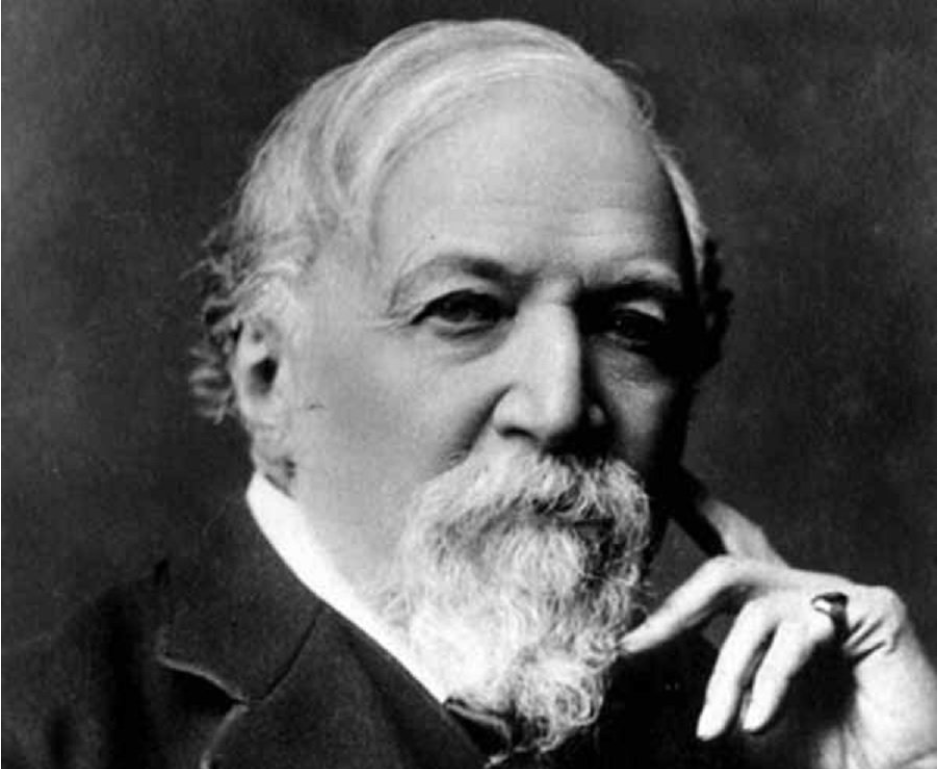– Nihala Navaz
POET

Robert Browning (1812-89) was a prolific poet of the Victorian age. He made a conscious decision to be a poet at the age of 18. Initially, Shelley was his literary hero. His wife Elizabeth Barrett Browning was also an imminent poet of the time. She was elder to him by six years and began writing poetry before him. His major work “paracelsus” (1835) delt with a Swiss Physician’s failure in his quest for perfect knowledge. He also tried his hand at drama with little success. “Bells and pomgranates” (1846) is his first anthology of play, dramatic monologues and lyrics, which contains his masterpiece like “Pippa Passes”, ‘The Pied Piper of Hamelin” and “My Last Duchess”. Dramatis personae (1864) another Anthology which contains forms like “Abt Vogler” and “Rabi Ben Ezra” expresses his insights on the contemporary scientific theories and perspectives on knowledge, truth and faith characteristics of Victorian age. “The Ring and the Book” (1868) widely regarded as his magnum opus, marks the culmination of experiment with the dramatic monologue. His last collection is Asolando.
Browning is the most considerable poet in English since the major Romantics, surpassing his great contemporary rival Tennyson and the principal twentieth-century poets, including even Yeats, Hardy, and Wallace Stevens.
Harold Bloom
POEM SUMMARY
My last Duchess is one of the best poems of Browning. This is a dramatic monologue and the speaker is the Duke of Ferrara. It is based on true events happened in 16th century (involving Alfonso the Duke of Ferrara who married three times.) The poem gives us an idea about the lives of women at that time; they were considered submissive.
The poem starts by Duke showing his guest a painting by Fra Pandolf of his second wife. The poem starts by Duke showing his guest a painting by fra pandolf of his second wife. He Praises his skill and mentions that the portrait looks as if she were alive. He asks the guests to sit and look at the painting more carefully. He told the guests that everyone who saw the picture would ask him how such depth and passion came to that face. And that question only turns to the Duke as he is the only one who brings down the curtain. You are not the first one to ask this says Duke.
It was not only her husband’s (Duke’s) presence made the Duchess blush, Duke adds. When Fra Pandolf say “her mantle laps over my lady’s wrist too much” or “paint must never hope to reproduce thet faint half-flush that dies along her throat”, She becomes too happy for everything and everyone. She liked whatever she looked on. Duke says that she had a heart which was very soon made Happy.
The Duke wasn’t very happy with that. The Duke was way too possessive the way she treated everything alike – Duke’s presents, sunset, the bough of Cherries which an official man broke from the Orchard for her, the white mule she rode with round the Terrace; she gave same words and blush to everything. Duke blames that even his gift of nine-hundred-years-old name is ranked as all other gifts.
The duke considers telling her “just this or that in you disgust me; here you miss or there exceeds the mark” – all these are lowering his position which makes his head bent even though he had skills in talking to make it clear. He don’t really choose to lower his position in making changes in someone’s Behavior or character. He says if the duchess let herself be lessoned that too would be beneath him. Duke adds that she smiled when he passed but this happens with everyone; she gives the same smile to everyone.
When this grew he gave commands to kill her and all the smiles stopped together. He then pleases the guests to stand up so they’ll meet the people below. The Duke then says that the count (the guest’s master and the Dukes bride-to-be’s father will never turn down his pretense for dowry even though he says that he is concerned only about his daughter. Duke then asks him to go down together. He makes the guest notice a statue of Neptune taming a seahorse; a rare piece which Claus of Innsbruck cast in bronze for the Duke. Neptune is the god of the sea. Duke considers himself as a God and sea as his next bride-to-be. This means he wants his total control and power over her.
In this poem we can find duke as a great lover of art. He is too possessive and selfish. He considers himself supreme. He want his wife to be lovable only to him and only his presence and gifts must make her happy. The poem is in a single stanza with AABB rhyming couplets. The Duke is a money-minded person. We can clearly see this when he mentions about the dowry. Some lines are in iambic pentameter.
Thanks for reading. Please do write down a comment below if this helped. 🙂 ❤

